By Sana Panjwani
There have been huge changes for women in past decades in ways their mothers and grandmothers could barely fathom.
After years of struggles, movements and campaigns lobbying for equal gender roles and opportunities, it may come as little surprise that in terms of employment, women’s earning power is growing faster than men’s in the developing world, according to a Deloitte study, making them crucial to economies.
“The truth is that women are already the most dynamic and fastest-growing economic force in the world today,” said Muhtar Kent, the CEO of Coca-Cola.
Given the crucial role of women in our system—and the economic hurdles too many women still face— economically empowering women and unleashing their entrepreneurial potenial have become a major priorities for many governments, businesses, startups and NGOs around the world to provide more opportunities, create inspiring female role models, and invest in their success and that of their families, communities and countries. As a result, women are constantly changing, developing, innovating and strengthening their communities.
But, there’s still a lot to be done.
There are still millions of women around the world struggling with violence, discrimination and inequality just because of their gender.
In some communities, menstruation is treated as a taboo, shameful topic , making girls self-conscious and ashamed of their own bodies from a young age, leading to severe body image issues. Victims of rape, stalking, and abuse are often discouraged from speaking up to avoid bringing shame to their families and are often blamed for bringing it on themselves by dressing “inappropriately” or staying out late. Child marriages, lack of education and political representation, unequal pay or even excluding women from the work force are just some of the struggles many women still face today.
Fortunately, there are people who are willing to take a stand and actively engage in making a difference. Launched in an effort to empower and inspire women around the world, these trailblazing initiatives from the Middle East and South Asia are thinking outside the box to shatter dangerous taboos, improve the lives of women and their families, and make a difference in their own powerful way:
1. Menstrupedia
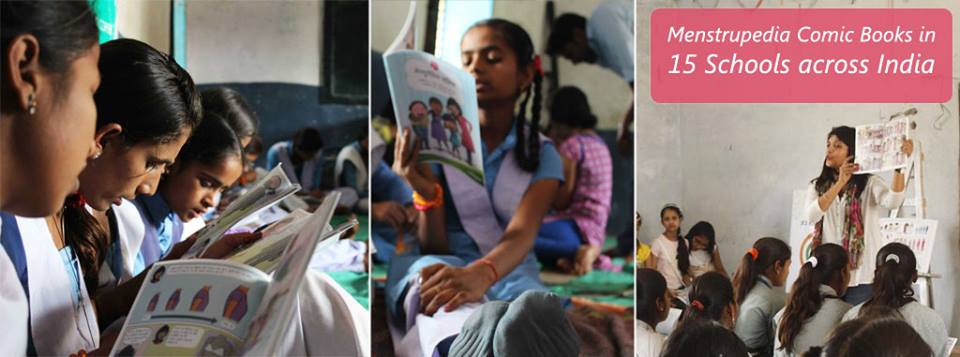
In many Eastern and South Asian communities, sexuality and aspects of it are labeled too private and sensitive to be discussed, even within a family setting.
One of the most rampant taboos is the notion of impurity, shame and secrecy attached to the natural female body process of menstruation. Due to the stigma associated with menstruation, women are often forbidden from worship, entering kitchens, touching certain food and even watering plants during their periods. These archaic customs, however, often lead to serious health and education risks, unhygienic practices and low self esteem among girls.
Menstrupedia is the brainchild of Aditi Gupta and Tuhin Paul, a fun, easy-to-read comic book that provides complete, accurate information about puberty and menstruation and deftly handles the most sensitive cultural restrictions with care. Educating women and encouraging them to feel more confident and comfortable in their own skin, the popular comic has now moved online garnering more than 100,000 visitors a month from 195 countries with volunteers eager to translate the book into eight different Indian languages and three foreign languages.
2. Saathi
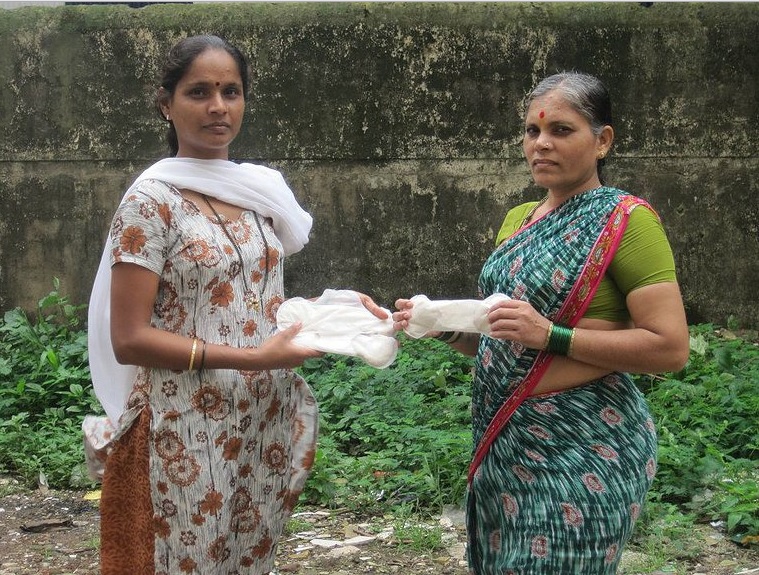
In many parts of rural India, girls and women are often confined to their homes for a week ever month and forced to “temporarily remove themselves from society, and from their daily routines” due to the cultural stigma attached to one of nature’s most normal rites of passage.
Social enterprise startup, Saathi (meaning “friend” in Hindi), aims to provide low-cost sanitary napkins and jobs to local women by producing fully biodegradable sanitary pads from waste banana tree fiber. MIT and Harvard Business School graduate Amrita Saigal’s determination to tackle the issue started as a junior at MIT when she realized that women in parts of India had little to no access to maxi pads, resulting in girls missing school and opting for unsanitary alternatives during their periods. During her senior year, she and 16 other mechanical engineering students chose to address the lack of sanitary pads in India for their college project, developing a prototype that women could operate to manufacture their own pads.
A few years later, Saigal launched Saathi together with Oracle engineer Kristin Kagetsu and went on to win the $50,000 grand prize and audience choice award at Harvard Business School’s 2014 New Venture Competition in the social entrepreneurship category.
Saathi partners with self-help groups in India, which are groups of about 10 women who gather and pool their resources to start their own micro-enterprises. After purchasing a machine from Satthi for $500, which they can repay within 3 months and manufacture their own pads, these women can then manufacture their own pads and run their own businesses using a door-to-door distribution model. Each group of women will then sell their pads in the village, charging 2 rupees a pad, to raise awareness for the innovative venture, provide women with a safer, more sanitary option and help these women earn a monthly revenue of about $1,000.
Each micro-business is expected to make about 30,000 pads a month to provide for a rural village of about 10,000 people.
“My grandmother grew up in a very rural village and missed school every month because it was taboo to go during this time,” said Saigal. “She says to this day it was something she was always upset about. To know that someone in my family went through this is ridiculous. If we can be the ones to solve this issue, it would mean the world to us.”
3. Sujag Sansar Organization
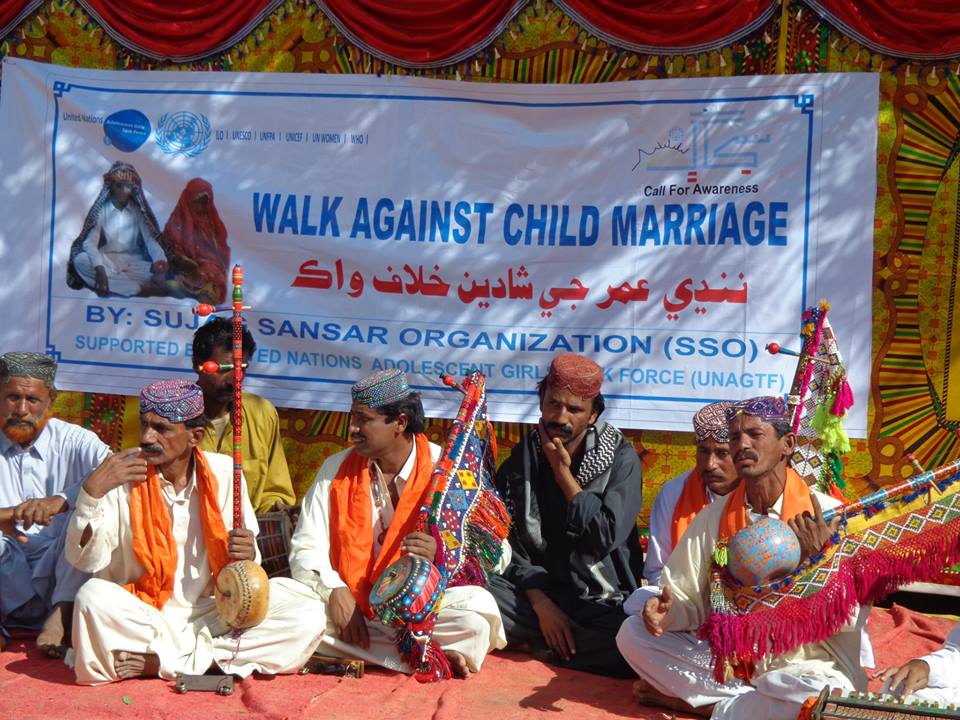
According to the International Center for Research on Women, almost 1 in 9 girls in the developing world are married before the age of 15 and one third of girls are married before the age of 18.
Founded in 2005, Pakistan-based NGO Sujag Sansar Organization – which literally means “Awakening the world” – aims to tackle the cruel and illegal practice.
This inspiring organization focuses on human rights issues, girls’ education, environmental protection and community awareness through theater, media advocacy and emergency response. One of their major initiatives is their anti-child marriage campaign that aims to raise awareness, educate communities, empower women and create change. What makes the organization even more amazing is the fact that men make up the majority of the rights group.
4. Buksh Foundation
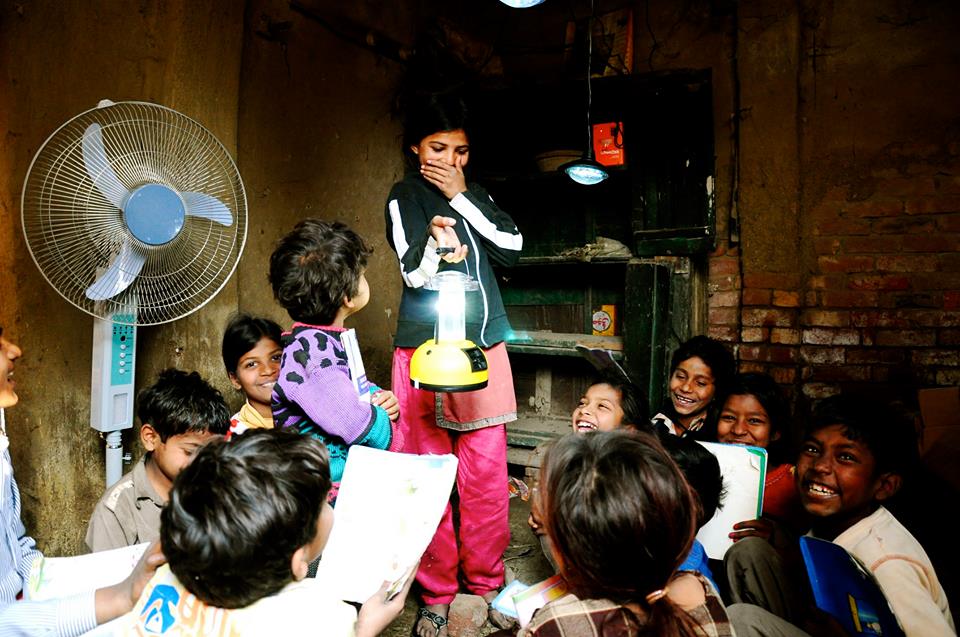
Access to electricity and power cuts are serious problems in Pakistan where load-shedding often shaves off hours of electricity every day in an attempt to save power. Households who lack access to electricity are forced to live and work under flickering candlelight or poorly lit torches.
Thanks to Lahore’s Buksh Foundation, thousands of people in Pakistan now have access to solar-powered lamps, allowing them to continue working comfortably into the night. Shama Bibi, a resident of Bahawalpur, said: “The solar lantern has changed my life. I can sew clothes even in the night and earn enough to make both ends meet.” Bibi also recently became a “Light Lady,” one of the women that the foundation has trained to help spread the power and benefits of solar energy within and beyond the rural community.
The foundation’s ‘Lighting a Million Lives’ initiative, in collaboration with The Energy and Resources Institute in India, also teaches women how to operate and maintain solar charging stations in their own homes and rent out solar lanterns to others in their village as well. So far, the organization has installed solar charging stations in 150 off-grid villages so far and plans to light up 4,000 villages by 2017.
5. Sheroes Hangout
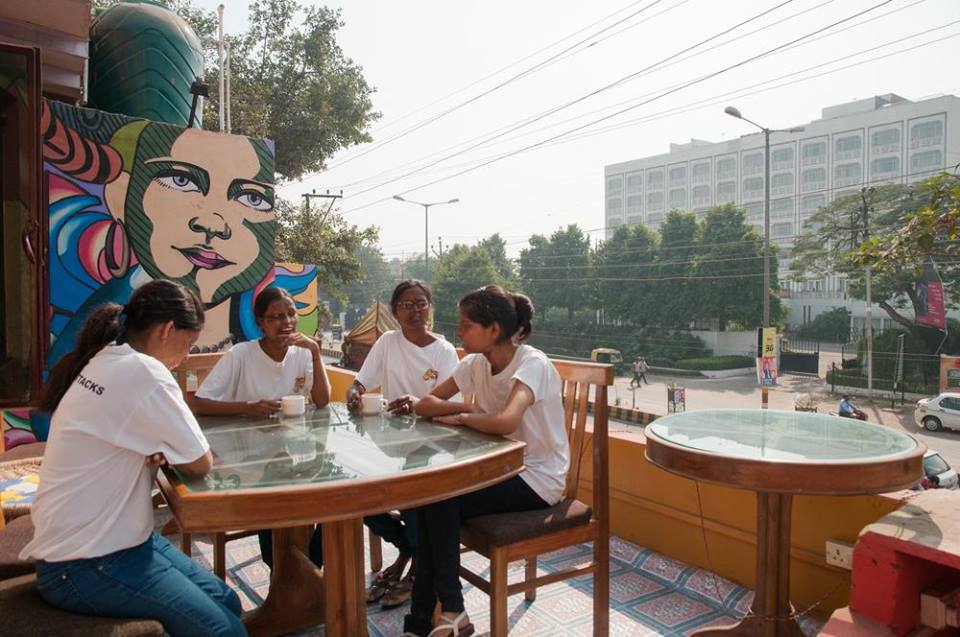
While beauty and physical appearance is admired and coveted around the world, a lot of weight is placed on women’s beauty in developing countries when it comes to marriage proposals. One of the most horrific crimes against women in South Asia – acid attacks – targets women by attacking a woman’s appearance to inflict “the harshest form of punishment” for trivial issues including rejected marriage proposals, rejected sexual advances from men or domestic disputes.
A new cafe in the Indian city of Agra, besides serving coffee, aims to remove the stigma surrounding victims of acid attacks.
Besides serving coffee, Cafe Sheroes’ Hangout, an initiative started by the Stop Acid Attacks campaign and the Chaanv Foundation in Agra, India, hopes to shatter the stigma surrounding victims of acid attacks, empower survivors and help them become financially-independent.
“The idea behind opening this cafe was not only to run a business but also to run an activity centre to spread awareness,” Ashish Shukla, a lead campaigner for Stop Acid Attacks, told Al Jazeera. “People think that acid attack victims are from the outer world. Sheroes is an effort to make them believe that they are from this world only. Since we as a society are responsible for their scars, it is our responsibility to fix it and bring them into the mainstream of society.”
The SAA campaign also released a powerful calendar, Bello, featuring acid-attack victims to showcase their stories and inspiring women to redefine themselves as strong, courageous and independent.
6. Roudha Center for Entrepreneurship and Innovation
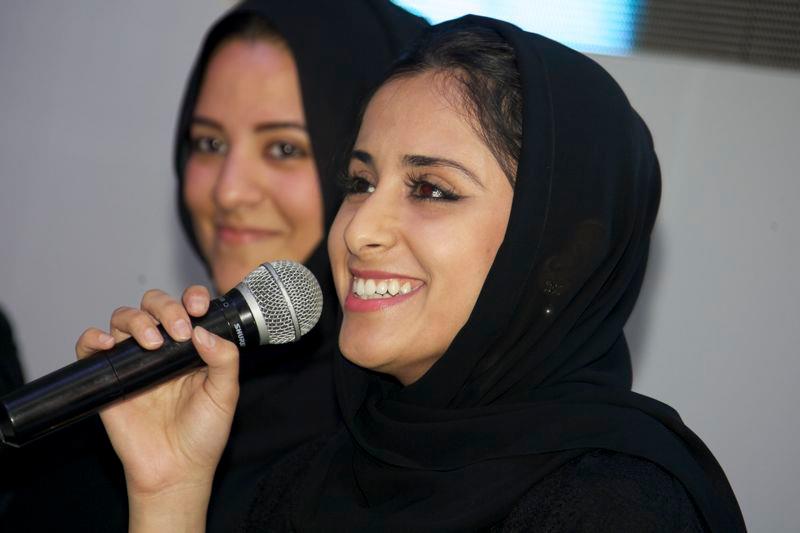
Based in Qatar, the Roudha Center offers business, financial, legal and programming courses for women to foster entrepreneurial spirit, innovation and empower them with the skills and knowledge needed to lead an economically self-sufficient lifestyle.
“Women are in need of our services more than ever, and that is evident from the number of women that attend our workshops and events. And their push for us to do more for them, by stating their exact needs,” said Shareefa Fadhel. “Change takes time, it happens in small steps, but we have been very aggressive on putting our voice out. Today more women are considering opening businesses—if not officially, they are doing business through their homes.”
Since its launch in 2011, the center has already reached more than 6,000 local women through its programs.
7. Glowork
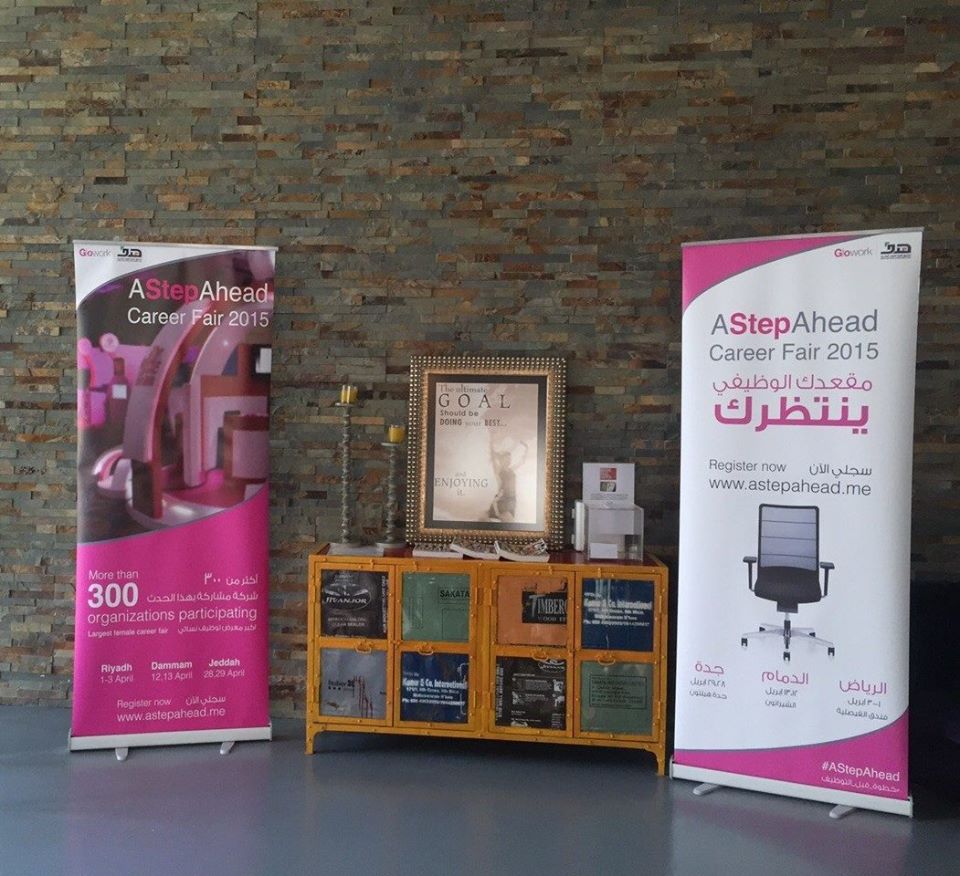
Despite the fact that 52 percent of university graduates in Saudi Arabia are women, according to the UN, the conservative country’s archaic segregation, transportation laws and cultural stigmas inhibit female employment.
Saudi-based social entreprise, Glowork, aims to overcome these hurdles and help women find jobs in the workforce by creating new opportunities and giving them access to work-from-home jobs as well.
“As a male I had a huge problem finding a job when I came back to Saudi after graduating and my sister had an even bigger issue finding an opportunity — and she’s smarter than I am,” said Khalid Alkhudair, co-founder of Glowork. “I was very curious to understand why there was a problem with unemployment.” The first portal to help women enter the workforce in Saudi Arabia, Glowork aims to empower women economically, provide equal rights opportunities and increase diversity in the workforce. According to Alkhudair, the company has already helped more than 26,000 women find direct jobs in the kingdom.
8. SheFighter
Violence against women isn’t unheard of, especially in the Middle East.
Jordanian entrepreneur Lina Khalifeh decided to fight back and tackle the issue head on by launching SheFighter, the first self-defense studio for women in Jordan and the Middle East, designed to empower women both physically and emotionally.
“Every day I see women underestimate themselves,” said Lina Khalifeh, the founder of SheFighter. “Many do not see the power they have inside to become amazing leaders. In these moments, I always start by sharing my favorite quote – ‘Speak up, even if your voice shakes.’”
Khalifeh has over 17 years of experience in martial arts, Kung Fu, boxing and kickboxing as well as a black belt in Taekwondo 3DAN, making her more than qualified to be offering self-defense classes in those areas. By equipping women with the know-how to defend themselves, Khalifeh is giving countless women a much-needed sense of security and the courage to pursue their ambitions and dreams as they see fit.

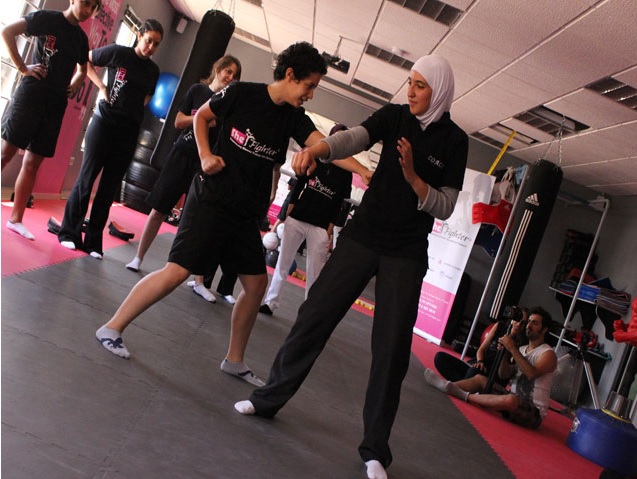




























Comments